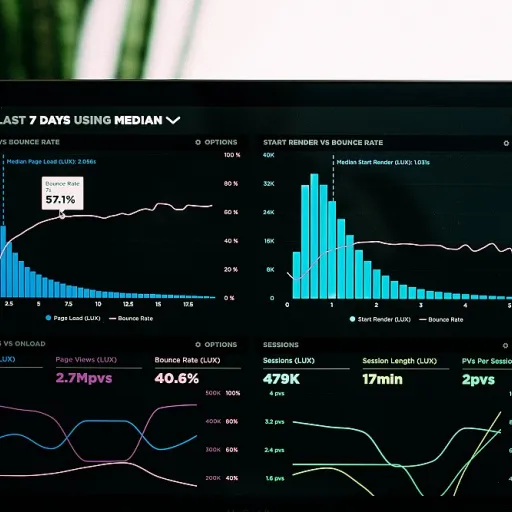
Understanding AI's Role in SEO
Leveraging AI for Better SEO Performance
SEO has continuously evolved, and the application of AI in this field is reshaping how businesses approach search optimization. AI's role in SEO is multifaceted, touching upon content creation, keyword research, and user experience enhancements. AI helps search engines like Google better understand and rank high quality SEO content on a website. By analyzing search volume and user search intent, AI tools enable businesses to produce tailored content that aligns more closely with what people search for. As a result, search engines can better connect users with the content they seek, resulting in improved ranking factors and potential organic traffic boosts. Moreover, AI enhances the user experience by interpreting search behaviors and providing relevant results through search engines. This not only aids businesses in improving their SEO but also helps align their content with the target audience effectively. By leveraging AI, companies can also examine search console data to gain insights into what users search for, refining their strategies over the long term. A deeper understanding of how AI functions in the realm of search engine optimization can significantly help google recognize and reward effective SEO practices. To learn more about how companies, particularly in niche industries, are enhancing their visibility with AI-driven SEO, you can read more about enhancing online visibility for architectural firms. Understanding and utilizing AI allows businesses to not only meet current SEO standards but also prepare for future changes in the SEO landscape.The Evolution of SEO Content Creation
The Shift in Content Strategies
The landscape of SEO content creation has dramatically transformed over the years. Initially, it focused heavily on cramming as many keywords as possible into text to game the ranking factors of search engines like Google. However, in today's digital era, quality and relevance have taken center stage. With AI advancements, creating content that aligns well with user search intent and provides a rich user experience has become pivotal.
Search engines, especially Google, have evolved to understand the nuances of human language better. This shift has made it necessary for businesses to focus on creating high-quality content that addresses users' needs and queries. Now, it’s not just about keywords, but crafting informative and engaging articles that truly help the target audience. This is where AI tools become invaluable, offering insights into user behavior and generating content that can enhance a site’s visibility and rank on search engines.
Importance of Understanding User Intent
Grasping what users are actually searching for is crucial for effective SEO. AI helps decode search intent, which has become a mainstay in SEO strategies today. It allows for a deeper understanding of keyword variations, such as long tail and niche search terms that can lead to more targeted traffic.
Search engines have become adept at identifying the thematic relevance of content over mere keyword stuffing. This means, as content creators, there is a need to ensure text is cohesive, with a logical flow that keeps users engaged. AI aids in this process by helping create text that resonates with what people search for across different platforms, from Google searches to social media engagements.
Adapting to Technological Advancements
Companies must adapt their strategies as content creation tools become increasingly sophisticated. AI’s role extends across the spectrum of search volume analysis, using Google Analytics for insights, and optimizing content tailored to user preferences. It enables businesses to create more personalized experiences, effectively boosting online visibility for areas such as architectural firms through AI-driven SEO. This adaptability ensures long-term benefits, both in terms of traffic and business growth.
AI Tools for Crafting SEO Content
AI-Driven Tools Revolutionizing SEO Content Crafting
The evolution of artificial intelligence has brought a transformative impact on crafting SEO content. AI tools are now helping businesses streamline their content creation process, allowing them to target the right keywords and boost their website's performance on search engines like Google. Understanding how these tools work can be a game changer for your site's visibility and ranking on Google search.
Google Analytics offers invaluable data insight, but AI tools take it a step further by analyzing massive volumes of search data to predict trends in search volume and user intent. Some of the AI advancements in content generation include crafting high-quality text that resonates with the target audience and optimizing search intent by understanding what users search for.
- Content Generation Tools: These utilize machine learning to suggest keywords, and generate engaging text that aligns with both current SEO strategies and the latest ranking factors from search engines.
- Search Optimization Systems: Advanced AI systems analyze search patterns and help in refining the site's SEO strategy to cater to what people search for, including long-tail keywords that ensure your content is easily discoverable.
- Social Media Integrators: These tools predict trends on social media, helping in crafting adaptable and trending SEO content that enhances user experience.
When using AI in SEO content, it's vital to maintain a balance between a data-driven approach and a human touch. For example, while AI can generate text rapidly, it should be aligned with the brand voice and be understandable to users. Free tools often provide a starting point but investing in advanced platforms ensures comprehensive analysis and long-term improvements.
Incorporating AI-driven tools into your SEO strategy can bridge gaps in traditional SEO tactics, empowering businesses to rank higher and reach a broader audience efficiently.
Challenges in AI-Driven SEO Content
Limitations and Drawbacks of AI in SEO Content Development
AI, while transformative in many areas, comes with its own set of challenges when applied to crafting SEO content. As businesses increasingly turn to AI for its potential to bolster search engine rankings and reach a wider audience, being aware of the associated pitfalls is crucial.- Lack of Human Touch: AI might excel in understanding keywords, text patterns, and search volumes, yet it often struggles to replicate the nuanced and engaging writing style that resonates with real people. This can impact the user experience and, ultimately, how a website ranks on search engines.
- Over-Optimization: Relying too heavily on AI tools may lead to over-optimized text with excessive keyword stuffing, diminishing the quality of the content. While AI can help understand the right keywords to target, it doesn't always produce high-quality content that search engines like Google reward.
- Contextual Misunderstandings: Although AI algorithms are becoming more sophisticated, they can misinterpret context, resulting in irrelevant or incorrect text. Google Analytics and Search Console can detect these inconsistencies, negatively impacting your site's SEO performance.
- Lack of Genuine Creativity: While AI is adept at data-driven tasks, creativity remains a domain where human expertise surpasses machine learning. AI-generated content might lack the creative flair needed to captivate a target audience or address diverse search intents efficiently.
- Dependency on Historical Data: AI models often rely on past data to make predictions and generate content. This can be a drawback, especially when emerging trends or changes in search intent aren't reflected in the historical data used by these machines.
Best Practices for Using AI in SEO
Embracing AI for Optimized SEO Practices
The integration of artificial intelligence in SEO has revolutionized how content is crafted and delivered. However, to truly harness its potential, it's essential to follow best practices that align AI's capabilities with your website's objectives. Here are some key strategies:- Understand User Intent: Prioritize the intent behind users' searches. AI can help parse through vast data volumes to determine what users are looking for. By focusing on search intent, you can develop content that aligns with what people search across various platforms.
- Focus on High-Quality Content: AI tools can assist in generating high quality content by suggesting improvements and ensuring that your writing resonates with the target audience. Quality content is a significant ranking factor in search engine algorithms.
- Use AI for Keyword Optimization: Integrating AI can aid in identifying keywords that have significant search volume and are relevant to your audience. This ensures your content meets users' and search engines' expectations.
- Leverage AI for Long-Tail Keywords: AI can explore and suggest effective long tail keywords that cater to specific user queries. This approach helps improve your site's ranking by addressing niche search demands.
- Improve User Experience: By analyzing user behavior patterns, AI can make suggestions to improve the user experience on your site. This includes optimizing page load times, enhancing alt text, and ensuring content is mobile-friendly.
- Monitor Analytics: Utilize tools like Google Analytics and Search Console to track and refine your SEO strategies. AI can help interpret these analytics to provide insights on how to improve and maintain your website's performance.
Future Trends in AI and SEO Content
Embracing Tomorrow's SEO Strategies with AI
The future of SEO content is rapidly evolving with the integration of artificial intelligence, and understanding its trajectory is crucial for businesses aiming for long-term success. As AI continues to develop, we can anticipate several trends that will shape the way we approach search engine optimization.
One of the key aspects of future SEO strategies is personalization. AI algorithms will help analyze user search behavior more accurately, allowing for the creation of more targeted and relevant content. This will enhance user experience by providing high-quality content tailored to individual preferences and search intent.
Another significant trend is the refinement of natural language processing. AI will further advance in understanding how people search, making it more adept at interpreting long-tail keywords and complex queries. This will help search engines like Google to deliver more precise results, benefiting both users and businesses seeking higher ranking in search results.
Automation will continue to play a pivotal role in SEO workflows. AI-driven tools are poised to streamline tasks such as keyword research, site audits, and content optimization. This not only saves time but also enhances the quality of SEO campaigns by ensuring texts are aligned with the latest ranking factors.
Visual content optimization is another area where AI will make a significant impact. Enhanced image recognition capabilities will improve how site visuals are indexed by search engines, making alt text and other metadata more vital for search ranking.
- Enhanced personalization for targeted SEO strategies
- Refined natural language processing for better understanding of user queries
- Increased automation in SEO tasks for optimized efficiency
- Advanced image recognition enhancing visual content indexing
As social media's influence continues to grow, AI will also assist in creating content that aligns with social trends and audience demographics. This will help brands to maintain relevance and improve engagement with their target audience across multiple platforms.
In conclusion, the integration of AI in SEO is not just a trend but a reinvention of how businesses interact with search engines and users. Its capabilities will help Google and other platforms to better understand and serve the evolving needs of people searching online, ensuring that search engines remain a key tool for finding and delivering valuable content.













